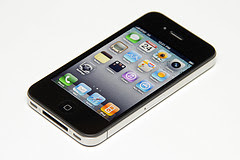This post gives tips on how to monitor and track updates or edits to existing blog posts on blogs which use Blogger / Blogspot.com, with Google's official blogs as an example.
Many of us subscribe to various Google blogs via feed readers / RSS readers in order to keep up with what's going on at Google. (For beginners: see RSS / feeds primer).
Unfortunately, Google sometimes just edits an old post to provide updates on certain issues, instead of publishing a brand new blog post. And they don't often publish a new post with a pointer to the updated post, either. So, unless you happened to be keeping an eye on the old post, you won't notice the update.
This has happened with Google blog posts about eg encrypted Google search, and also the Street View wifi data collection kerfuffle.
Fortunately, there's a workaround. Instead of subscribing to the standard feed, subscribe to the "updated" feed instead. See how to subscribe to updated Blogger feeds and more for full details (note the examples in the second half of that blog post).
The trick is this: just subscribe using a slightly enhanced URL which catches updates to posts.
So, if the blog's URL is http://googleblog.blogspot.com, the feed URL you should use in your newfeed reader is:
http://googleblog.blogspot.com/feeds/posts/default?orderby=updated&max-results=1000000
- ie add the bit in bold italics.
"orderby=updated" is what gets you blog posts that have been most recently updated/published, and not just newly published posts only.
"&max-results=1000000" or something similar is needed because if you don't add it in (and just use http://googleblog.blogspot.com/feeds/posts/default?orderby=updated), it'll only give you the last X blog posts, not all of them (X is currently 25). 10000000 is probably overkill because Google limits the maximum number of blog posts it'll give you from Blogger / Blogspot blogs - the current limit seems to be 500, so you could probably use "&max-results=500" instead.
A twist to note is that if you subscribe using Google Reader, when you search it'll often search a greater number of blog posts than that if anyone has subscribed using the same URL previously, as it'll have indexed the posts they received. If you want to be able to search over older posts from that blog, then you could subscribe to the basic standard feed URL as well, eg http://googleblog.blogspot.com/feeds/posts/default
Here's another example. To get a feed of new and updated posts on Google's public policy blog, use:
http://googlepublicpolicy.blogspot.com/feeds/posts/default?orderby=updated&max-results=1000000
(or just make it 500 instead of 1000000). You get the drift.
This tip only works for Blogger / Blogspot.com blogs, not blogs using other blogging platforms like WordPress etc.
